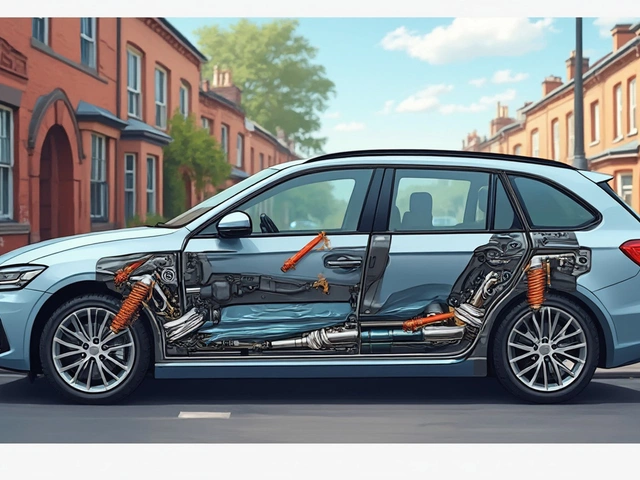Automotive Batteries: Choose, Test, and Keep Yours Happy
Got a car that won’t start? Most of the time it’s the battery. Knowing when to replace it, how to pick the right type, and how to keep it in good shape saves you time and money.
How to Spot a Failing Battery
Look out for these tell‑tale signs: the engine cranks slowly, the dashboard lights dim, or the car stalls right after starting. A quick voltage check with a multimeter can confirm the problem – a healthy 12‑volt battery should read around 12.6V when the engine is off and 13.8‑14.4V when it’s running.
Another clue is the age. Most batteries last 3‑5 years, depending on climate and driving habits. If yours is older than that, schedule a test even if it seems fine.
Picking the Right Battery for Your Car
Start by checking your owner’s manual or the label on the old battery. You’ll need the correct group size (the physical dimensions) and the right Cold Cranking Amps (CCA) rating for your climate. In colder regions, a higher CCA helps the engine turn over when it’s frosty.
Don’t forget about warranty. At Northwich Tyres Centre we stock batteries with up to 3‑year warranties, so you’re covered if a defect shows up early.
If you’re unsure, bring your registration number to the shop. Our team will look up the exact fit and suggest the best options for your budget – whether you want a cheap starter or a premium long‑life unit.
When you buy a new battery, clean the terminal clamps and the tray before fitting. Corrosion on the terminals is a common cause of starting trouble, and a simple brush with a wire‑brush works wonders.
Installing a battery is easy if you follow safety steps: wear gloves, disconnect the negative (-) cable first, then the positive (+). Place the new unit, reconnect positive first, then negative, and tighten the clamps snugly.
After fitting, run the engine for a few minutes to let the alternator charge the battery. If the car still hesitates, have a professional run a load test – we do that quickly at our centre.
Regular maintenance keeps a battery alive longer. Check the electrolyte level on lead‑acid batteries (if they’re not sealed) and top up with distilled water if needed. Keep the battery’s surface dry and free of dirt.
If you notice a bad smell, swelling, or cracked case, replace the battery immediately. Those are signs of internal damage and can be hazardous.
Northwich Tyres Centre doesn’t just sell batteries. We offer free fitting with a 30‑minute guarantee, so you’re back on the road fast. Need a MOT? We’ll test the battery as part of the service and let you know if it passes.
Bottom line: know the age, watch for symptoms, pick the right size and CCA, keep terminals clean, and get it fitted by a pro if you’re not comfortable. With these steps, your automotive battery will stay reliable for years.
 23 March 2025
23 March 2025
How Long Do Car Batteries Last? An Essential Guide for Drivers
Exploring how long car batteries typically last, this guide delves into the factors impacting battery lifespan, from climate to driving habits. It also covers signs your battery might need replacing and offers tips to extend its life. Whether you're new to car maintenance or just looking for a refresher, this article is packed with practical advice for keeping your car running smoothly.
Latest Posts
-

Identifying Noises from Faulty Car Suspension: What to Listen For
-

Can a Clutch Last 200k Miles? Real-World Facts and What Actually Matters
-

When Replacing a Clutch, What Else Should Be Replaced?
-

What Code Will Show for a Bad Fuel Pump? Common Diagnostic Trouble Codes Explained
-

Suspension Parts Explained: What’s Under Your Car?
Tags
- car maintenance
- engine oil
- spark plugs
- brake pads
- engine performance
- vehicle maintenance
- spark plug replacement
- windshield wipers
- fuel pump
- suspension parts
- clutch replacement
- oil change
- clutch kit
- car suspension
- car performance
- air filters
- car radiator
- exhaust systems
- fuel pump replacement
- engine misfire

0